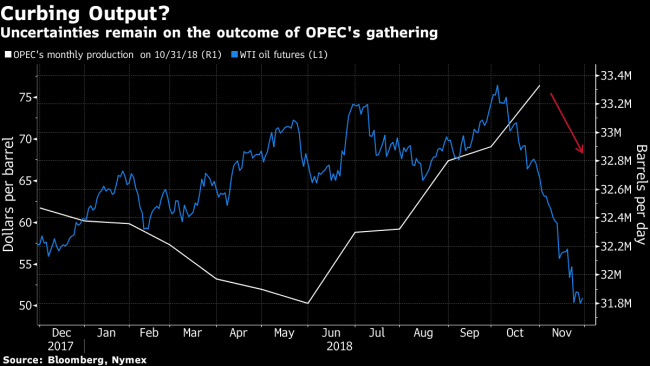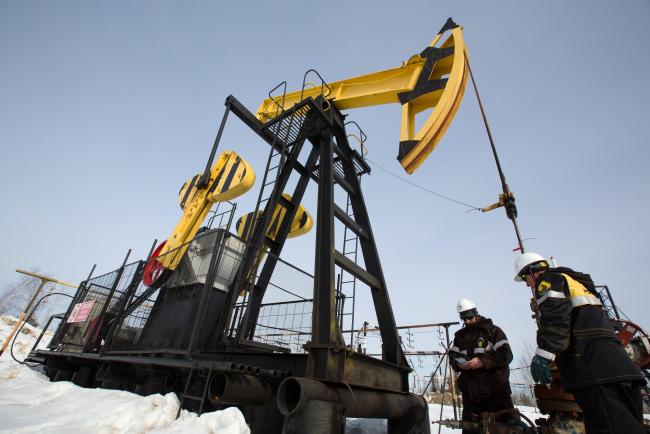(Bloomberg) -- Oil rose above $50 a barrel in New York, erasing an earlier loss, after a report that Russia accepts the need to cut production in conjunction with OPEC.
All eyes are on this weekend’s G20 summit in Argentina, where Russia’s Vladimir Putin and Saudi Arabia’s Mohammed bin Salman are likely to discuss how to coordinate oil policy. The nations are in talks over the timing of any reduction in supply, Reuters reported Thursday, a week before producers are due to meet in Vienna next week to discuss policy for 2019.
“Today’s price levels imply that the petro-nations will maintain their output hikes or that the world economy is about to slow down significantly,” said Norbert Ruecker, head of macro and commodity research at Julius Baer Group Ltd. in Zurich.
Futures added as much as 2 percent in New York, trading at $51.02 a barrel at 12:28pm London time. Prices fell earlier to the lowest since early October 2017. Volume was about double the 100-day average.
Brent for January settlement, which expires Friday, added 71 cents to $59.47 a barrel on London’s ICE (NYSE:ICE) Futures Europe exchange. The global benchmark traded at an $8.39 premium to WTI. The more-active February contract added 74 cents to $59.84 a barrel.
See also: Resilient Russian Oil Companies Give Putin Leverage With OPEC
Putin praised Saudi Crown Prince Mohammed Bin Salman on Wednesday and said Moscow is ready to cooperate further. He also said crude around $60 a barrel is “balanced and fair” and well above the level needed to to keep his government’s budget in surplus.
In the U.S., crude stockpiles rose by 3.58 million barrels last week in the longest run of gains since November 2015, according to the Energy information Administration. The build was higher than the 1-million-barrel gain predicted in a Bloomberg survey, overshadowing a surprise draw in gasoline inventories.


